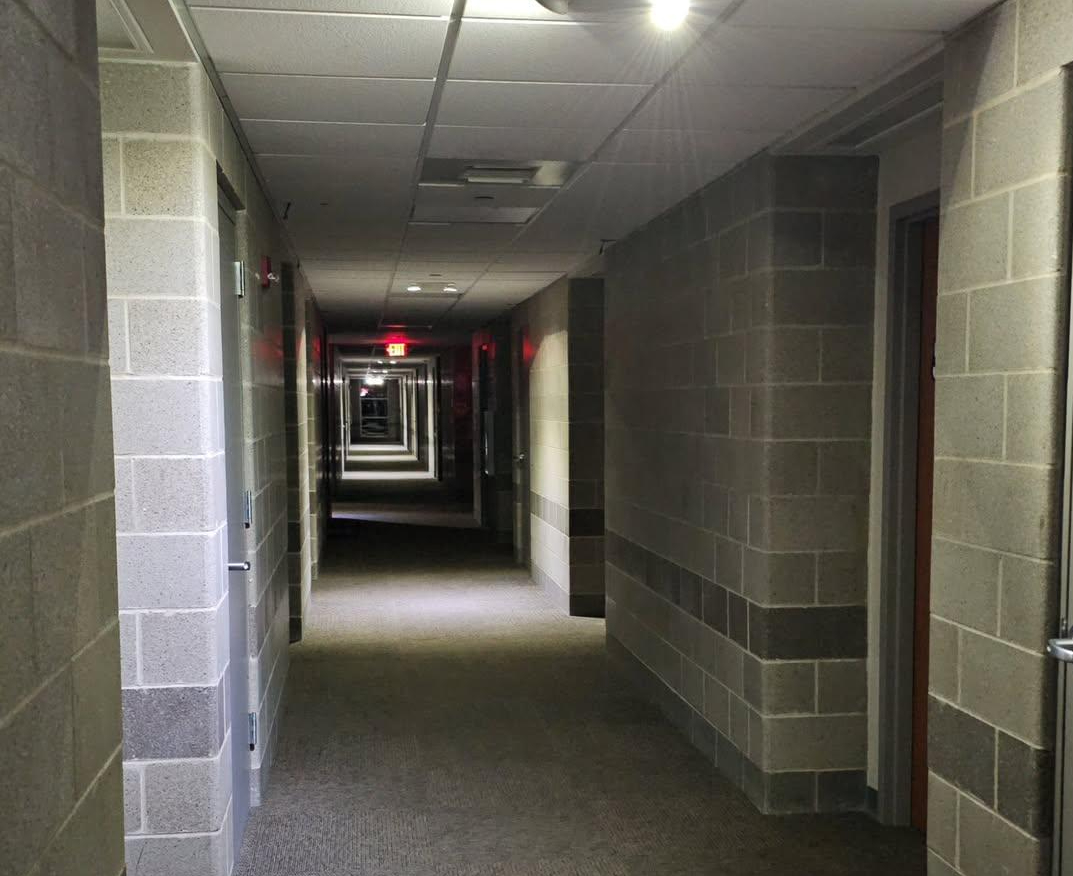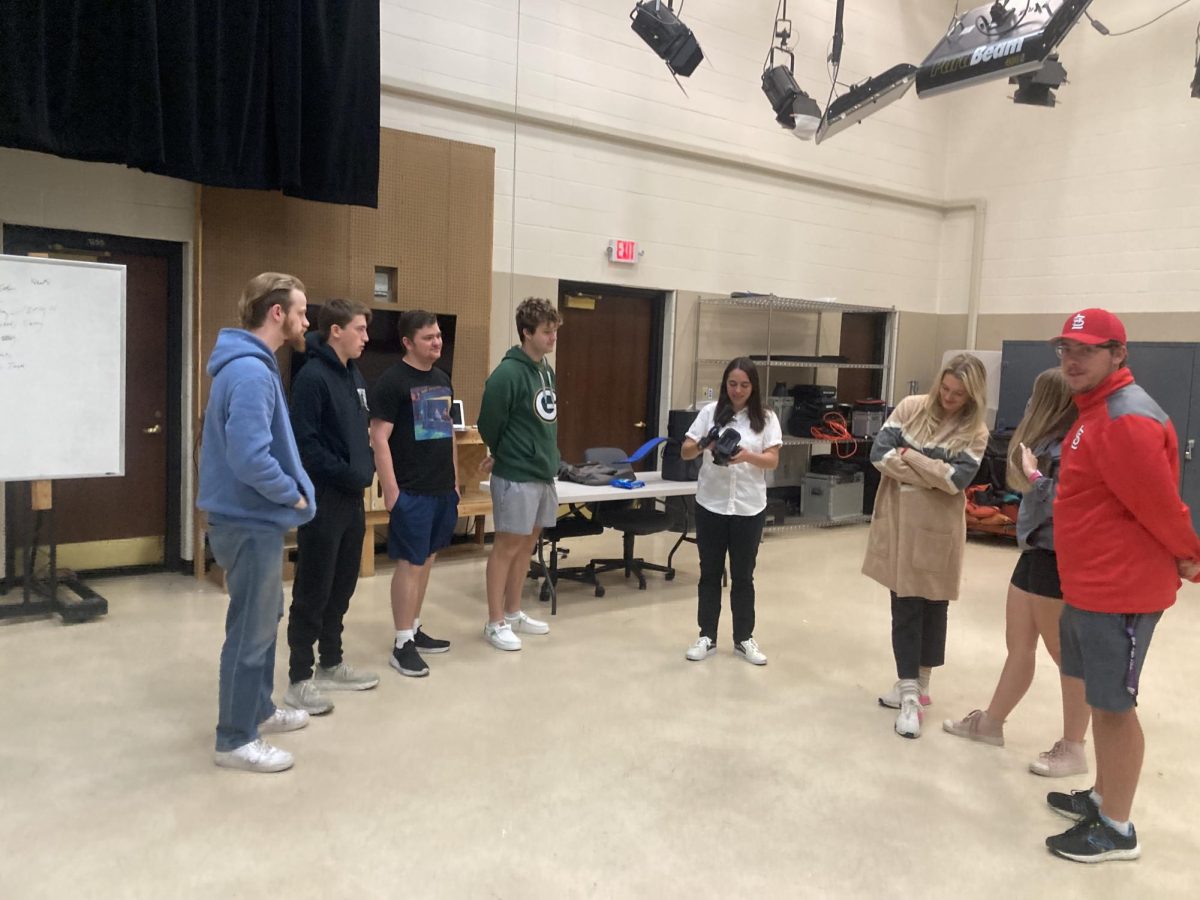KAYLA DRAKE | Video Content Manager
For about 700 freshmen New Student Orientation just concluded and for a little under 7,000 undergraduates Welcome Back Week is kicking off.
Campus is buzzing with the beginning of the fall semester – friends and sports teams are reuniting, events are happening weekly and students are settling into schedules. With this much activity comes a period experts have named “the red zone,” defined as the first six weeks of the semester. During this time students are at a higher risk for sexual assault.
Over 50 percent of reported sexual assaults occur between August and November, according to the Rape, Abuse and Incest Network.
Back-to-school parties and trips to Main Street often involve alcohol, which affects people’s ability to make decisions and defend themselves.
The Clery Act requires universities that receive federal funding (like Lindenwood) to report annual statistics of crimes that have occurred on campus locations. According to data collected from Clery’s nationwide statistics, 74 percent of rapes occurred in on-campus housing.
Public Safety officer and Clery Coordinator, Paula Stewart said statistics show “chances of sexual assault are higher,” during the first few weeks of semester but she said she did not see the same correlation at Lindenwood.
Whether the university reflects or defies the statistic, Title IX Coordinator Kelly Moyich said she encourages all students to “be familiar with how [the university] defines prohibited conduct.”
Prohibited conduct, defined by Lindenwood’s Title IX Policy includes:
A. Sexual misconduct (relationship violence, sexual harassment, exploitation and assault)
B. Retaliation, any actions or threats that would prevent a person from reporting sexual misconduct
C. Sexual Discrimination, based on pregnancy, parental status, gender expression, gender
identity, or sexual orientation.
As Title IX Coordinator, Moyich is in charge of addressing all sexual misconduct cases that are reported and ensuring the university is in line with its Title IX policy.
Steps to file:
- Report it. Either email Kelly Moyich or file an anonymous report through the Public Safety page. A student can also call or walk-in either of the previously mentioned offices. Moyich is in the Library and Academic Resources Center (LARC) 225, Public Safety is in Spellmann on the fourth floor. Another option is to tell either a trusted coach or professor. Note: if it is an emergency call 911 or Public Safety.
- Stewart said if the accused party is not an employee or student at Lindenwood “we cannot hold them accountable for a policy that does not apply to them.”
- According to RAINN, only 20 percent of female college students (18-24 years old) report sexual assaults to law enforcement.
- Receive help. Stewart said Lindenwood’s officers will provide the victim immediate assistance if they need to be driven to the hospital. Moyich will be in contact with the victim after the report is filed. At the first meeting, Moyich will offer counseling centers and a Title IX investigation. A victim is not required to proceed with a Title IX investigation.
- The only confidential sources on campus are Chaplain Torbitzky and the counseling center (both resources are free). Every other staff or faculty member employed by the university is required to report sexual misconduct if confided in.
- Open an investigation. Ray Nabzdyk is the Title IX investigator and Emergency Manager for Lindenwood’s Public Safety. According to Stewart, all campus officers have been trained to assist in an investigation. Public Safety will interview witnesses of both the accused and victim. Previously, the Obama administration passed legislation that mandated investigations to be resolved within 60 days. Betsy DeVos, current Secretary of Education from the Trump administration has revoked that legislation, but Stewart said she still tries to adhere by the 60 days policy because “to have investigations linger for a long time is not beneficial for anybody.”
- A Title IX investigation will only be opened if the accused person is either a student, staff or faculty member at Lindenwood.
Title IX Investigation’s process:
This is the same process Moyich exercises every time a timely warning is sent out. The university sends the warnings if it poses an immediate threat to student safety on campus, according to Stewart. Lindenwood is required to send timely warnings for Clery Act crimes: robbery, burglary, aggravated assault, arson, vehicle theft, sexual assault and murder.
- After offers for counseling and medical attention are made, Moyich discusses “interim and protective measures if the accused is apart of the Lindenwood community.” This can include suspension from activities or sports and changing class schedules.
- After all the information is gathered (witness statements, evidence, etc.) Moyich will summarize the findings, and a hearing will ensue. Associate Vice President of Student Life and Diversity Dr. Shane Williamson, will review the summary and determine if the policy was violated. After Williamson has determined her conclusion, Vice President of Academic and Student Affairs, Dr. Marilyn Abbott will have the final say on consequences.
- Limits will be imposed – which can be as serious as expulsion from the university.
Lindenwood’s Title IX Policy:
Every university has a Title IX policy; Moyich said it is important to be familiar with the guidelines and definitions the university has developed about sexual misconduct, among other things.
The policy is 30 pages long, and 10 of those pages are solely dedicated to definitions.
Resources:
Lindenwood provides a complete list of resources for victims, including Bridgeway Behavioral Health Center, which specializes in a sexual assault program. The center also partnered with Campus Organization Against Sexual Assault, a student club, for Take Back The Night Walk last April.
President of COASA, Haley Holman said her organization exists to educate people, spread awareness and eliminate the shame that comes with sexual assault.
“It’s not a women’s issue, it’s a human’s issue,” she said. “As a human being knowing that you are not alone and what you go through is something that a lot of people go through, unfortunately. There are people that are trying to stop this, and there are people that are here for you.”
The campus club also puts on various workshops throughout the year such as dating violence and how to have healthy relationships.
The 24-hour hotline for Bridgeway Center: 636-946-6854.









